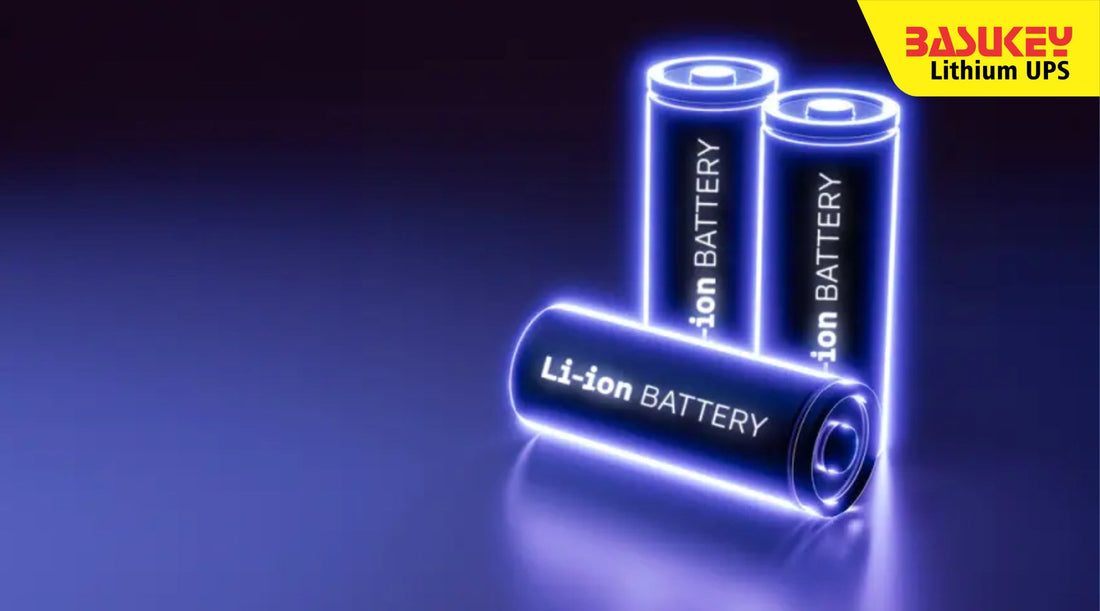
Efficiency and Reliability: The Role of Lithium UPS in Power Management
Share
Efficiency and Reliability: The Role of Lithium UPS in Power Management
In today’s fast-paced digital world, efficient and reliable power management is crucial for businesses, homes, and data centers. Whether it’s maintaining continuous operations during power outages, ensuring the stability of electrical systems, or safeguarding sensitive equipment, having a robust power backup solution is essential. Lithium-based Uninterruptible Power Supply (UPS) systems have emerged as a game-changer in this space, offering enhanced efficiency, reliability, and long-term sustainability.
Understanding Lithium UPS: A Modern Solution to Power Challenges
An Uninterruptible Power Supply (UPS) is a device that provides backup power when the main power source fails. Traditional lead-acid batteries have been the go-to option for UPS systems for decades. However, lithium-ion batteries have taken center stage in recent years due to their superior performance and environmental benefits. Lithium UPS systems use lithium-ion batteries to provide backup power, offering a host of advantages over conventional UPS solutions.
1. Superior Efficiency: Less Downtime, More Power
One of the key benefits of lithium UPS systems is their enhanced energy efficiency. Lithium-ion batteries are more efficient in energy conversion and storage, ensuring that less energy is wasted. This translates into more available power and reduced operational costs. For businesses that rely heavily on continuous power—like data centers, hospitals, or manufacturing plants—minimizing downtime is critical. Lithium UPS systems help achieve this by maintaining stable power without the inefficiencies that often accompany traditional lead-acid-based UPS systems.
Moreover, lithium-ion batteries offer a higher charge/discharge efficiency rate, ensuring that more of the stored energy is available when it’s needed. They can also recharge faster, reducing the time required for battery replenishment, further enhancing overall system efficiency.
2. Reliability: Consistent Power When You Need It Most
Reliability is the cornerstone of any UPS system. A reliable power backup system ensures that operations run smoothly without interruptions, even during power failures. Lithium UPS systems excel in this area, thanks to their long lifespan, stable discharge rates, and resistance to temperature fluctuations.
Lithium-ion batteries are known for their ability to deliver consistent performance over a wide range of temperatures, which is critical for industries that experience varying environmental conditions. Unlike lead-acid batteries, which can degrade quickly in extreme temperatures, lithium-ion batteries maintain their charge capacity and efficiency over time, offering a more reliable backup solution.
Additionally, lithium UPS systems are more resilient to deep discharge cycles, meaning they can be depleted and recharged many times without significant degradation. This makes them a reliable choice for businesses that experience frequent or prolonged power outages.
3. Longer Lifespan and Reduced Maintenance
Another major advantage of lithium UPS systems is their longer lifespan compared to traditional lead-acid batteries. Lithium-ion batteries typically last 5 to 10 years, significantly outlasting their lead-acid counterparts, which often need replacement every 3 to 5 years. This extended lifespan means fewer replacements and lower maintenance costs over the life of the UPS system.
In addition to longer service life, lithium UPS systems require less maintenance. Lead-acid batteries often need regular monitoring and maintenance to ensure they remain in optimal working condition. In contrast, lithium-ion batteries require less attention, reducing downtime and operational disruptions.
4. Compact and Space-Efficient Design
Lithium UPS systems are also more compact and space-efficient than their lead-acid counterparts. The smaller and lighter lithium-ion batteries allow for more flexible installation, making them ideal for environments with limited space, such as small offices, server rooms, or industrial settings. The reduced physical footprint also enables businesses to optimize their workspace and store other essential equipment, contributing to better overall facility management.
5. Environmental Benefits
Sustainability is becoming increasingly important in today’s business world. Lithium-ion batteries offer a more environmentally friendly option compared to traditional lead-acid batteries. Lead-acid batteries contain hazardous materials that require careful disposal, while lithium-ion batteries have a lower environmental impact and are easier to recycle. As businesses and individuals become more eco-conscious, transitioning to lithium UPS systems represents a step toward reducing one’s carbon footprint and contributing to environmental preservation.
6. Cost-Effectiveness Over Time
While lithium UPS systems may have a higher upfront cost compared to traditional models, they prove to be more cost-effective in the long run. The extended lifespan, reduced maintenance, and lower energy consumption make lithium UPS systems a smarter financial choice for businesses that depend on consistent power. Over time, the total cost of ownership is lower, making them a worthwhile investment in terms of both reliability and financial savings.
Conclusion: The Future of Power Management
Lithium UPS systems are revolutionizing the power management industry with their superior efficiency, reliability, and environmental benefits. By providing businesses with consistent power, reducing downtime, and offering a more sustainable solution, lithium UPS systems are becoming a staple in critical power applications. As the demand for uninterrupted power continues to grow, businesses that invest in lithium UPS technology are positioning themselves to thrive in a power-dependent future.
For anyone seeking a reliable, efficient, and long-lasting solution to power management, lithium UPS systems are undeniably the way forward. Whether you’re protecting sensitive data, keeping equipment running smoothly, or simply ensuring operational continuity, the shift to lithium UPS is a smart and forward-thinking choice.
